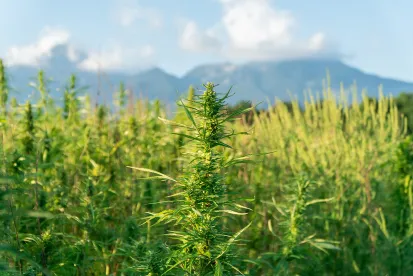New guidance to banks that wish to provide financial services to hemp-related businesses was released on December 3, 2019. The statement was jointly issued by several key federal banking regulators, including the Board of Governors of the Federal Reserve System, the Federal Deposit Insurance Corporation (FDIC), the Financial Crimes Enforcement Network (FinCEN), the Office of the Comptroller of the Currency and the Conference of State Bank Supervisors. The purpose of the statement is to provide clarity on the legal status of commercial hemp and the legal obligation of banks under the Bank Secrecy Act (BSA) and relevant anti−money laundering (AML) laws.
The stimulus for this new guidance was the issuance on October 31, 2019, of an interim final rule by the United States Department of Agriculture (USDA) for its Domestic Hemp Production Program. Upon issuance of the interim rule, the USDA now may proceed with review and approval of state and tribal hemp plans. Although hemp may continue to be cultivated pursuant to authority granted by the 2014 Farm Bill, that authority sunsets on October 31, 2020, one year after publication of the interim rule.
The new hemp banking statement makes clear that banks are no longer required to file a Suspicious Activity Report (SAR) on transactions involving cultivated hemp that is legally compliant. Banks are instead directed “to follow standard SAR procedures and file a SAR if indicia of suspicious activity warrants.” The statement emphasizes that it is the bank’s customer rather than the bank itself that is responsible for complying with applicable hemp regulations.
The statement further explains:
“It is generally a bank’s business decision as to the types of permissible services and accounts to offer, and banks must have a BSA/AML compliance program commensurate with the level of complexity and risks involved. When deciding to serve hemp-related businesses, banks must comply with applicable regulatory requirements for customer identification, suspicious activity reporting, currency transaction reporting, and risk-based customer due diligence, including the collection of beneficial ownership information for legal entity customers.”
Despite passage of the 2018 Farm Bill one year ago, hemp- and CBD-related businesses continue to face substantial difficulties with banking relationships, including commercial banking services, lending services and merchant payment processing. CBD businesses should anticipate continued difficulty with banking relationships given the FDA’s ongoing prohibition of CBD in ingestible products. This new guidance will nevertheless greatly assist with the fluid growth of the wider hemp industry.



 />i
/>i


